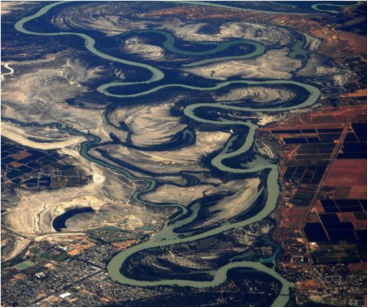King’s Water is pleased to host Stefanie Schulte, Policy Manager at the New South Wales Irrigators’ Council, on Tuesday 18 October 2016.
Stefanie will share insights from a case in Australia. “Just adding water? The Water Act, sustainable diversion limits and environmental health in the Murray-Darling Basin” will be held in the War Studies Meeting Room on the 6th Floor of the King’s Building on the Strand Campus. Join King’s Water from 4:30pm for a presentation from Stefanie followed by open discussion and a drinks reception.

At the peak of Australia’s Millennium Drought, Australian lawmakers sought to amend the water management practices in the Murray-Darling Basin. Extremely low precipitation, high temperatures and a Federal election enticed the then Prime Minister John Howard to announce a $10 billion national water management plan to improve water efficiency in the Murray-Darling Basin, set a sustainable diversion limit for surface water extraction, recover water entitlements for the environment and introduce a range of Federal institutions tasked with managing Murray-Darling Basin water resources. What came next was a long list of Federal and State legislation rewriting water management in the Murray-Darling Basin starting with the passing of the Water Act 2007 and the Basin Plan in 2012. Among many initiatives, the Basin Plan proposed a 2750GL water recovery target for the environment.
While the early years of the Basin Plan focused on non-strategic water purchases for the environment, the most recent years have seen a change in how water for the environment is acquired and how environmental health is assessed. With a change in government in 2013, policy makers move away from straight water entitlement purchases and towards infrastructure investment as well as imposed a cap on water purchases which was enshrined in the Water Act in 2015 – recognising the wide-scale social and economic impacts in the Murray-Darling Basin through the water recovery process. Recently, Basin water ministers have agreed to consider non-flow related measures to achieve better environmental health.
After nearly 10 years of water reform in the Murray-Darling Basin, the ‘old mantra’ of environmental water recovery appears to be changing. The question is, have we found a better way to manage Murray-Darling Basin water resources or will we be moving in a yet different direction after the next Federal election in July 2016?